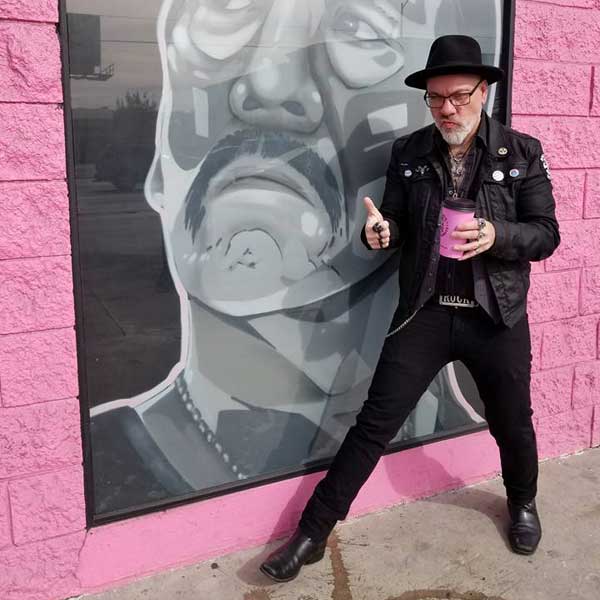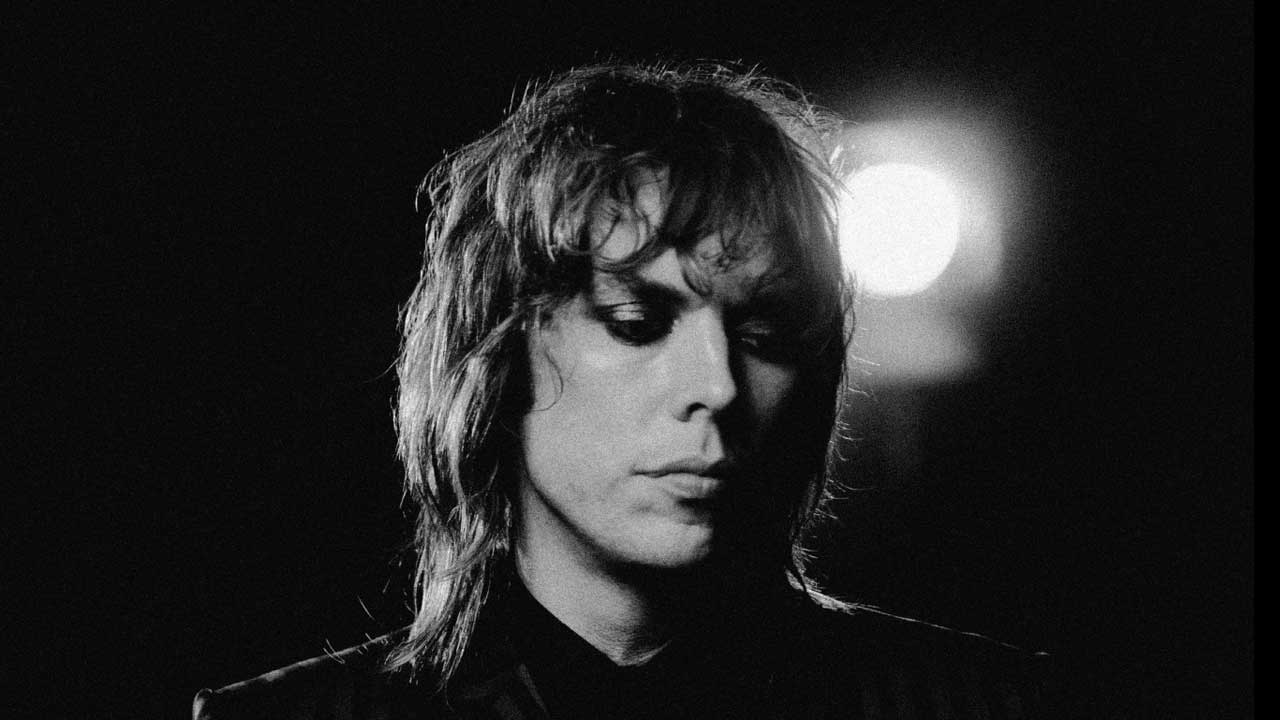“We’d stay up all night drinking, chasing girls, partying – and our pilot was with us. The next morning he was flying the plane!” The rise, fall and rise of AOR superstars REO Speedwagon
The rollercoaster story of REO Speedwagon, the AOR band with a rock’n’roll spirit
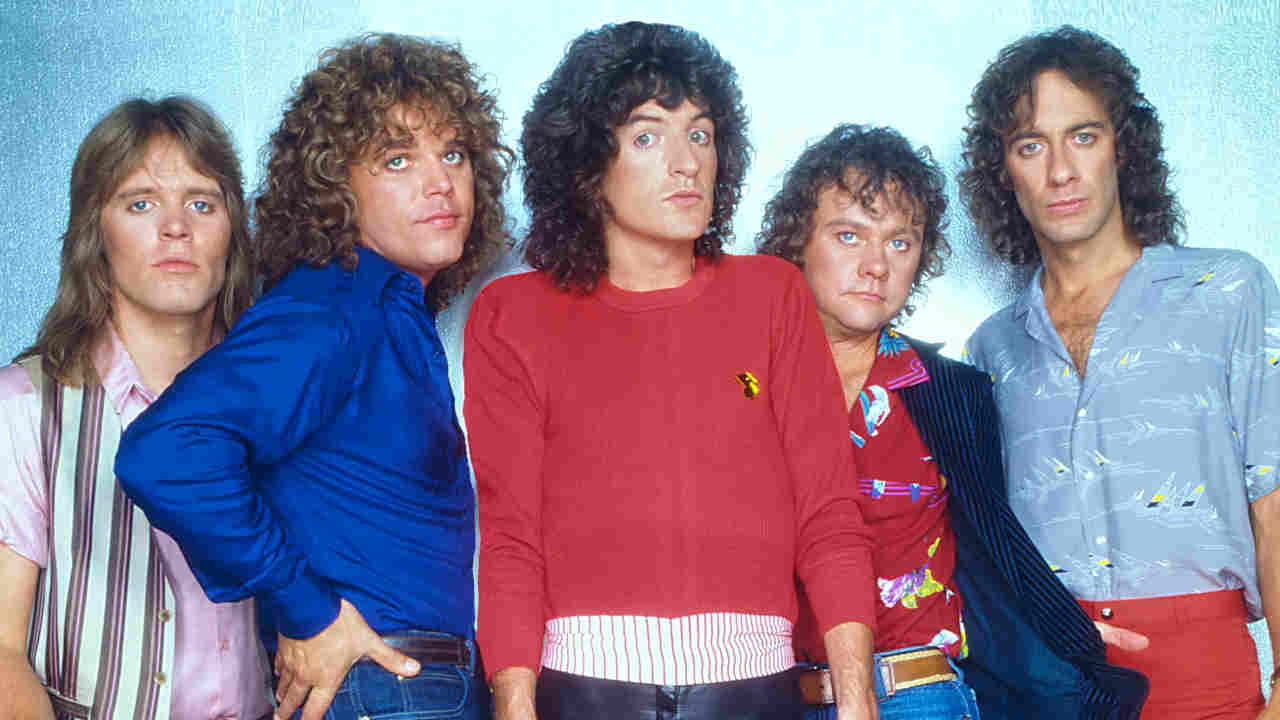
A recent bust up between longtime REO Speedwagon singer Kevin Cronin and the band’s founding bassist (and sole remaining original member) Bruce Hall has effectively marked the end of the hard rock veterans as a touring band. But hard times weren’t a new thing in the Speedwagon story, as Classic Rock discovered when we spoke to the pair around the release of their fifteenth studio album, Find Your Own Way Home, in 2007.

With record sales topping 40 million, for a brief period in the early 1980s REO Speedwagon were the most popular band in America. And the most reviled.
The Doctor Frankensteins of the contemporary ‘power ballad’, a saccharine mix of gooey love-song fluff and overwrought hard rock guitars, REO shot to the top of the charts with undying monster hits like Keep On Loving You and Can’t Fight This Feeling and paved the way for the endless stream of girl-baiting, chart-smashing soft hits from the glam metal brigade five years later.
Suffice to say that were it not for REO, we might never have had bands like Firehouse, Extreme, Slaughter or White Lion. Whether that’s be a blessing or a curse is entirely up to you, but REO’s pioneering work lingers on, even today. The sales they spurred in disposable lighters to wave at concerts alone would boggle the mind.
But there’s more to REO then the power ballad and the squeaky-clean, Midwestern nice-guy image. Underneath the tooth-dissolving sweetness of their poppier hits lies a never-say-die work ethic that has weathered 30 years of adversity. From their salad days in the early 1970s as a scrappy, Purple-powered hard rock band slogging from one Midwest bar to the next, to the enormo-domes and arenas of their Hi-Infidelity era, and back to trenches in their leanest years in the 1990s, REO Speedwagon have endured.
No flash-in-the-pan musical trend, no jarring personnel shake-up, no amount of critical disdain can topple them. They are, at their core, an authentic, heads-down, no-frills rock’n’roll band, with just as many tales of woe and moments of blinding glory as any of the flashier 70s rock survivors. There was money to burn and addictions to feed, chart-topping singles and a slow, painful descent back to bar-band status; the perils of rock’n’roll decadence did not pass over the ’Wagon.
“It was 1978. We were headlining an outdoor show in Kansas City; it was at a baseball stadium. Ted Nugent and Fleetwood Mac were opening up for us,” says REO frontman Kevin Cronin. recalling how the band’s first hit, Riding The Storm Out, once took a prophetic turn, and taught the band a lesson in resolve that they continued to carry with them.
Classic Rock Newsletter
Sign up below to get the latest from Classic Rock, plus exclusive special offers, direct to your inbox!
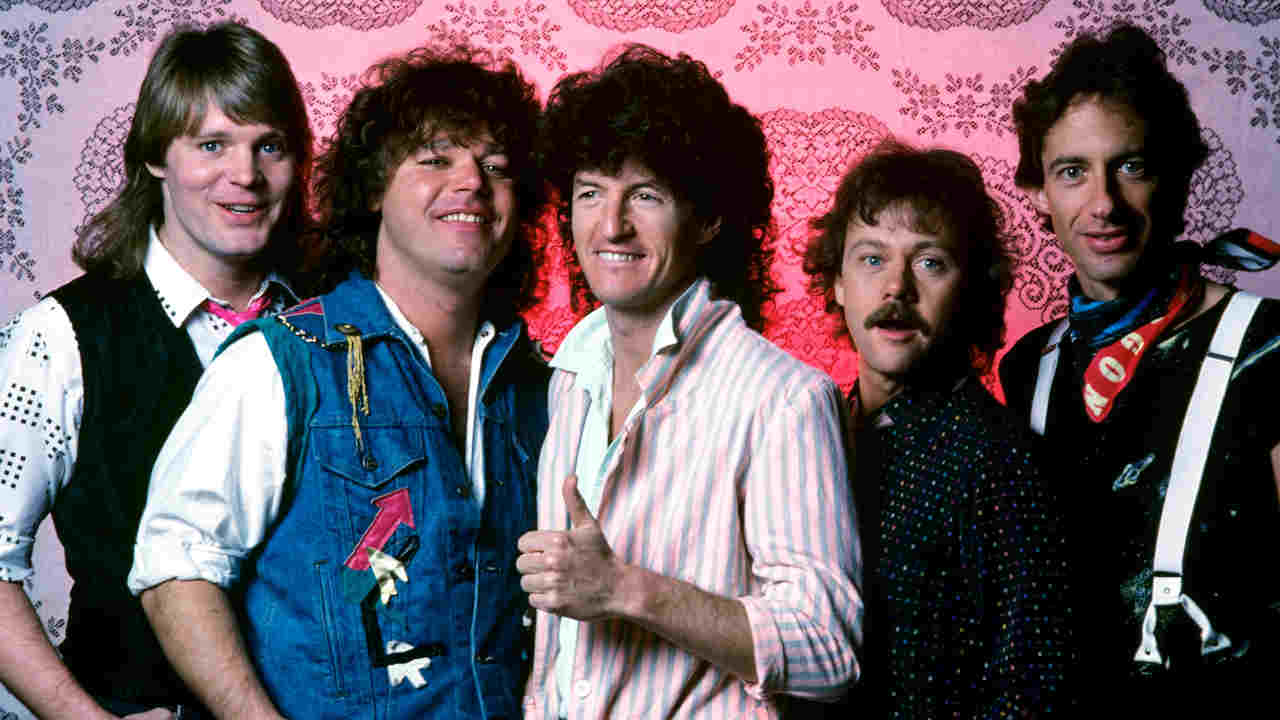
“It was raining all day, just miserable. By the time we went on it was really bad. There was thunder, lightning. The promoters were actually trying to talk us out of going on because it was too dangerous. But we went on. I figured, well, we could get the plug pulled on us at any time, so let’s play Riding The Storm Out first.
"So we went out, played it, and somewhere during the song all the lights go out. There’s 40,000 people that have been rocking out all day, in various stated of inebriation, and the lights go out. The scoreboard was still working, and they put up a warning on it for everyone to get down from the stands because a tornado had just touched down two miles from the stadium.
“So we’re standing on the side of the stage trying to figure out what to do. The managers and the promoters just want to call it a night, but there’s 40,000 people out there who’ve just been told that a tornado has touched down two miles away, and they’re still screaming ‘REO! REO!’ They weren’t going anywhere.
“The only power I had was a flashlight, and I held it over my head so the audience could see me. They went fuckin’ bananas; they knew we weren’t gonna leave ’em. A band with a song called Riding The Storm Out doesn’t wimp out, we do the gig. They finally got the power back up, and we played. And nobody left.”
Riding The Storm Out was the standout track on 1977’s You Get What You Play For, a successful live album that saved REO from losing their long-standing contract with Epic Records. Although the band from Champaign, Illinois had a stranglehold on the Midwest almost since their inception in 1967, they had yet to make any breakthroughs in the rest of the country.
Their oddly titled 1978 album You Can Tune A Piano But You Can’t Tuna Fish spawned their first Top 40 hit in the shape of Roll With The Changes, and the band began to pick up steam. At this point REO were still considered a hard rock band, but singer Kevin Cronin, whose background was as a folk singer, was about to usher in some new musical ideas.
“When I wrote Keep On Loving You I had no idea,” Cronin laughs. “I came into the studio and played that song on the piano, and if you could see the look on my band’s face. They looked at me like I was out of my mind. I mean, originally that song had more to do with Mandy by Barry Manilow than it did with Deep Purple, that’s for sure.
"But I just said to our guitarist, Gary Richrath: ‘Just plug in, turn it up, and see what happens.’ And that was the breaking point, right there: my little ballad, the power of Gary’s guitar, and the drums come in on the chorus. There it was. That record went to No.1 so fast it made our heads spin.”
Keep On Loving You was one of six hit singles on 1980’s Hi-Infidelity album. Although its immediate follow-up, 1982’s flawed Good Trouble, didn’t perform as well as the band expected, 1985’s Wheels Are Turning shot them back to the top of the charts with the No.1 single Can’t Fight This Feeling. For almost half a decade, REO Speedwagon were monsters of rock, with all the money and fame they could handle.
“It’s pretty intoxicating,” Cronin remembers. “You start to think you can do anything you want to do. So suddenly it becomes all about self-discipline. It’s really easy not to buy that bag of cocaine when you can’t afford it. But when you can and it won’t even make a dent in your finances, you’re like: ‘Sure, I’ll take that. Hell, I’ll take two!’ That was a dangerous combination: youth and too much money.”
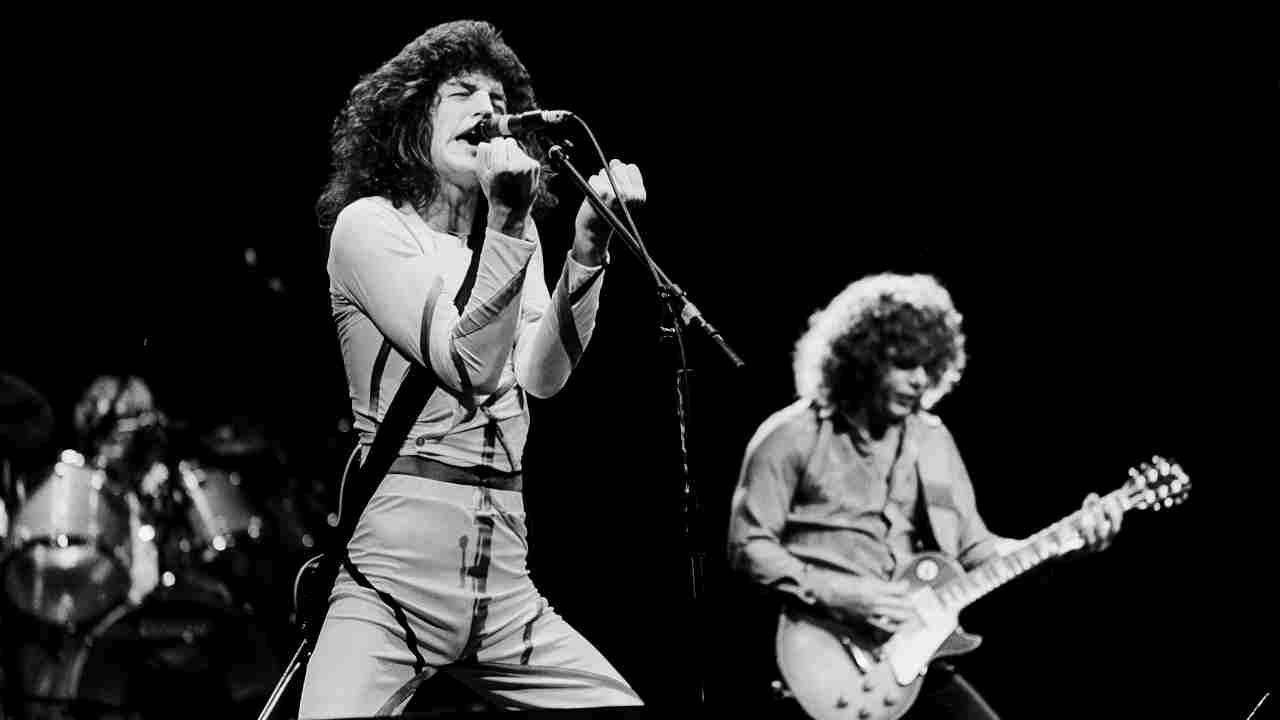
REO Speedwagon got so big so fast that they even had their own plane, the legendary Flying Tuna. “We were so crazy back then. We’d stay up all night at hotels, drinking, partying, chasing girls – and our pilot was right there with us. The next morning when we were all recovering, he was flying the plane! I’ll never forget, we’d come in for a landing, the plane would bank, and you’d hear Heineken bottles rolling around in the cockpit.”
Such Zeppelin-like scenarios are a striking contrast to the unblemished public face REO displayed in countless television and radio appearances at the height of their success. Cronin chalks it up to knowing when to put the bottle down, but admits that “the reality of life on the road with REO was greatly at odds with the image we portrayed.”
As the 1980s wore on, REO’s bright star began to fade, and dissension within the band set in. A major turning point in the band’s career occurred in 1988, when long-time guitarist Gary Richrath – considered by many to be the heart of REO Speedwagon – quit. Whether he did so of his own accord or was asked to leave is still open to debate, but the end result left the band as close as it ever was to dissolving (Richrath passed away in 2015).
“It was the 80s. Some of us made it through, and some of us didn’t. I’ll leave it that,” REO’s long-time bass player Bruce Hall says. “But that was definitely one of those points where we questioned whether we should keep doing this or not.”
Cronin agrees. “After Gary left, I wasn’t sure if the band was even going to go on. I was really thinking of calling it a day. I remember one day our manager said to me: “We should probably not be paying for the storage for all the REO equipment. We should just sell all that stuff and give up the warehouse.” That reality hit me like a left cross. I wasn’t ready to let go of it yet. The spirit of REO is that we keep playing, through rain, through tornadoes – we don’t give up.”
The band started again from square one. They brought in a new guitarist, Dave Amato, and in 1990 released the album The Earth, A Small Man, His Dog, And A Chicken, then proceeded to play anywhere they could get a gig. Anywhere at all – even soccer stadiums in Columbia, opening for Milli Vanilli.
“It wasn’t Milli Vanilli, it was the ‘real’ Milli Vanilli,” Cronin corrects. “This was after the scandal, after they had their Grammy taken away. So now, it was 1992. When I heard we were booked in Columbia, I thought there were going to be machine-gun nests everywhere. I was like: ‘Are you fuckin’ kidding me?’
“Anyway, that tour was a high point for us in those days,” he laughs. “We were playing some shit gigs. For a band that had played Madison Square Garden 10 years before, playing bars in New Jersey and country fairs was a real wake-up call.”
This Spinal Tap-ish turn of events resulted in a heap of nasty press at the time from hipper-than-thou critics, but Cronin was undaunted. “I never felt vengeful about anything bad people wrote about us, although it did hurt my feelings sometimes,” he says. “Now it’s just like the old adage: I don’t care what you say as long as you spell my name right.”
In 1996, after their then-label, Priority, went bankrupt, REO self-released the politically charged Building The Bridges. It failed to do much business, so the band concentrated on releasing greatest hits packages, a shrewd move that eventually built their core audience back up. They’ve been touring seasonally ever since, and with the release of their new album Everyone Loves A Happy Ending the band are ready to become full-time rock stars again.
Bassist Bruce Hall is philosophical about it all. “We’re musicians, so what else are we gonna do? We’re just gonna keep playing. If you get to strap on your guitar and play some songs, and people are willing to pay you for it, then you’re a lucky guy.”
Originally published in Classic Rock magazine issue 107, May 2007
Classic Rock contributor since 2003. Twenty Five years in music industry (40 if you count teenage xerox fanzines). Bylines for Metal Hammer, Decibel. AOR, Hitlist, Carbon 14, The Noise, Boston Phoenix, and spurious publications of increasing obscurity. Award-winning television producer, radio host, and podcaster. Voted “Best Rock Critic” in Boston twice. Last time was 2002, but still. Has been in over four music videos. True story.

